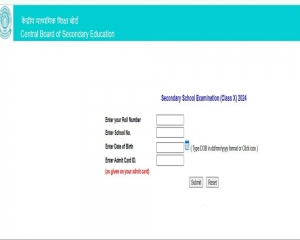To strengthen its standing as a global leader in maritime security, it is imperative to adopt a robust Maritime Domain Awareness framework
The adoption of a robust Maritime Domain Awareness (MDA) framework is crucial for addressing the challenges faced by maritime-dependent industries and nations worldwide. In order to demonstrate the necessary commitment towards the protection of marine infrastructure and maritime domains, India must strengthen its maritime security programmes by keeping the rapidly changing maritime geopolitics and emergence of diverse threats in attention. By prioritising research and development funding' and 'promoting international MDA partnerships,' India can position itself as the global leader in maritime security.
India's Maritime Domain Awareness (MDA) concepts must undergo a significant transformation, shifting from traditional water surface-centric initiatives to embrace space-based monitoring and AI-driven Operational Technology (OT) systems. The focus on maritime security needs to extend beyond territorial limitations to encompass regional and global perspectives, recognizing the heightened competition in seas. Given India's substantial global role in maritime affairs, effective MDA models must be prioritized as a fundamental component of the maritime security outlook. This evolution is essential to proactively address emerging threats, enhance surveillance capabilities, and foster international collaboration in securing maritime interests.
In the context of multilateral Maritime Domain Awareness (MDA) cooperation, the Maldives' geographical proximity to China's expansion goals and the rising maritime incidents underscore the critical need for vigilant maritime monitoring. Proactively addressing China's increasing influence in the South China Sea is imperative. Given its status as the largest stakeholder and the key actor in the Indian Ocean Region, India must take the lead in institutionalizing MDA.
Recognising the inadequacy of limited national capacity to protect vast water expanses, this necessitates fostering multilateral cooperation, promoting inclusivity, and leveraging sophisticated technologies. As one of the largest maritime operators strategically positioned in the region, India should formalize a framework for multilateral MDA cooperation involving relevant parties. This initiative can facilitate access to robust yet affordable MDA resources, while also fostering intelligence sharing and joint exercises to collectively address diverse maritime security challenges.
India has demonstrated a strong commitment to enhancing its Maritime Domain Awareness (MDA) capabilities, particularly in the aftermath of the "26/11" attacks. Notable initiatives, such as the National Marine Domain Awareness (NMDA) project and the collaboration with France on the Indian Ocean Region (IOR) satellite constellation, highlight India's proactive efforts to create an integrated MDA network. To ensure a cohesive and successful MDA approach, there must be a focus on establishing a specialised coordination body, conducting regular audits, and evaluating past initiatives. Recognizing the dynamic nature of maritime threats, the involvement of multiple stakeholders and adaptability to evolving scenarios are emphasized, contributing to the resilience and effectiveness of the MDA framework.
Integrating current unmanned technology with human intelligence transforms marine security. India can lead maritime security by integrating these technology into marine plans faster. Real-time threat identification, thorough monitoring, vessel vetting, due diligence, and AI insights to optimise the MDA framework are required. Technology, especially AI, improves Maritime Domain Awareness (MDA) for countries like India. For early threat detection, deliberate investments in cutting-edge surveillance and intelligence technology like ASVs, UAVs, and UUVs are necessary. Autonomous systems like ASVs, UAVs, and UUVs improve reaction and marine security.
Initiatives such as the National Command, Control, Communication, and Intelligence (NC3I) network demonstrate the scope of MDA operations. Succinct and adaptable MDA is the result of periodic revisions in response to emerging threats and the active participation of experts from diverse disciplines. For autonomous system integration and preparation against emerging threats, a specialised task force, learning processes, and technology infrastructure updates are essential. It is imperative that collaborations be formed with academic institutions, research centres, and technological firms. Cybersecurity and interoperability assure MDA unmanned system security and efficiency. Regular cybersecurity audits strengthen MDA systems against evolving cyber threats. India must modernise its technology and form new cybersecurity alliances to handle marine security issues. Since the "26/11" event, India's Navy and MDA have increased maritime security initiatives, demonstrating a commitment to securing the whole maritime domain. Recent successes in right-time detection and fast eradication of varied marine threats highlight MDA's naval operating concept evolution. Investment in naval personnel training and cutting-edge technology would help the Indian Navy meet MDA goals.
(The Author is working with an Independent Think Tank; views are personal)

























